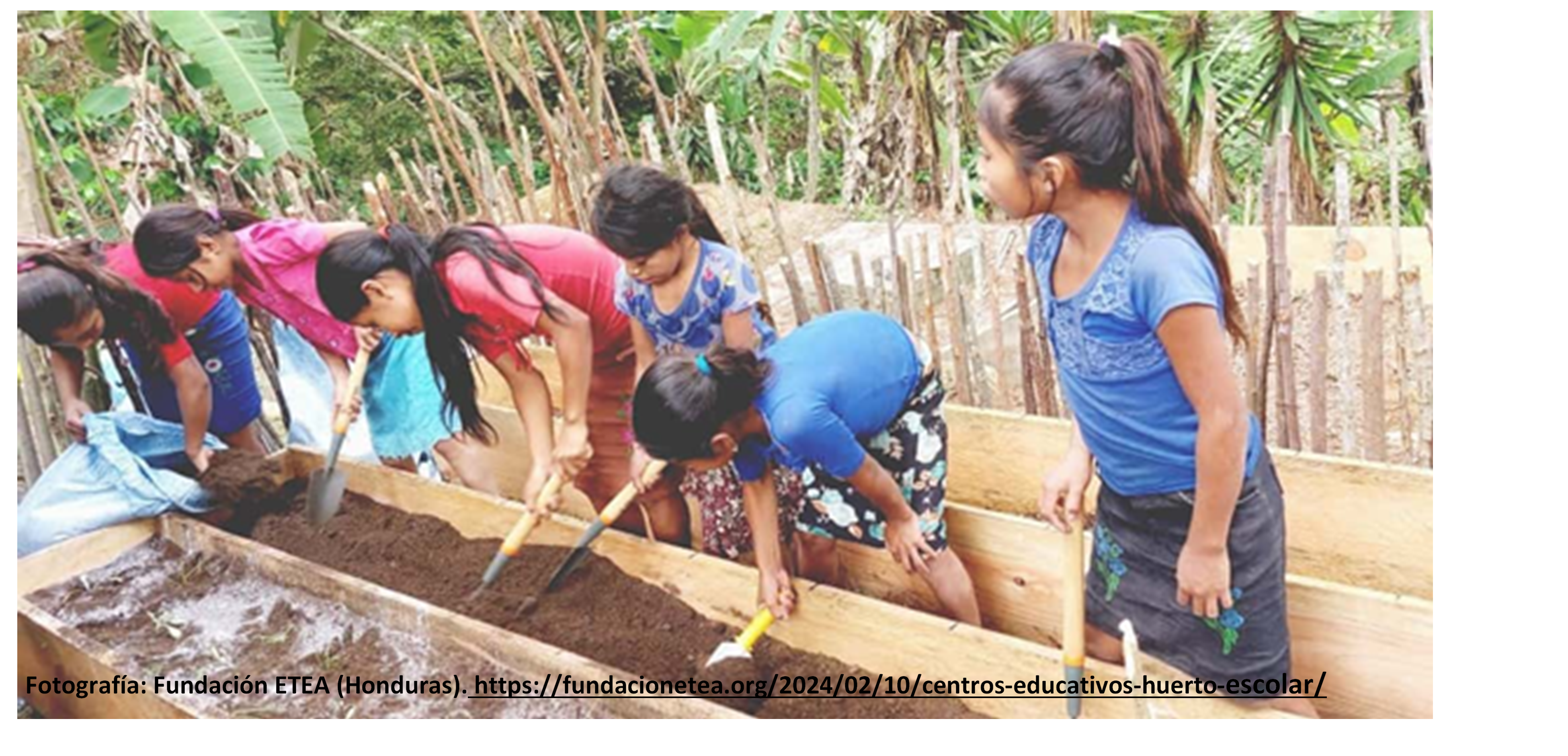Socio-ecological care as the basis for situated learning: critical perspectives in environmental education
DOI:
https://doi.org/10.5027/psicoperspectivas-Vol24-Issue3-fulltext-3501Keywords:
care, learning progressions, local knowledge, situated learning, socioecological concernsAbstract
In this study we analyzed progressions of situated learning, projects that follow the methodology of the four quadrants of the CARE Mexico Project. Progressions were designed by multigrade pedagogical guides (GPM) in Yucatán, Mexico, within the framework of an accompanied teacher training process. In the qualitative content analysis of the 20 progressions (11 preschool and 9 elementary), local socio-ecological concerns guiding their design were identified -food, health, pollution, community coexistence, water, plants, and animals- as well as the knowledge and practices of care, both local and school-based, that were integrated into them. The results show how the progressions enable students to build contextualized knowledge and actively participate in addressing community challenges, as they integrate community narratives and local care practices (gardens, traditional medicine, games, embroidery) with curricular content. The proposed actions -recipe books, gardens, cleaning campaigns, revival of traditional games and embroidery- illustrate the active dimension of situated learning. We conclude that the design of progressions constitutes a pedagogical tool that fosters critical environmental education on socio-ecological issues in multigrade schools, contributing to the transformation envisioned by the New Mexican School.
References
Cabrera, F. (2024). Educación liberadora para abordar la crisis socioecológica: aportes y desafíos. Sinéctica, Revista Electrónica de Educación, 63, 1-17. https://doi.org/10.31391/S2007-7033(2024)0063-005
Castro, F., & Rodríguez, B. (2025). Estrategias didácticas en el aula multigrado: un estado del arte. Revista Iberoamericana de Educación Rural, 3(5), 45-57. https://doi.org/10.48102/riber.v3i5.89
Edwards, A. (2015) Designing tasks with engage learners with knowledge. In I. Thompson (Ed.), Designing tasks in secondary education. (pp. 13-27). Routledge.
García, J. (2015). ¿Es posible una didáctica de la Educación Ambiental? Hacia un modelo didáctico basado en las perspectivas constructivista, compleja y crítica. Revista Eletrônica do Mestrado em Educação Ambiental, 1, 4-30. https://doi.org/10.14295/remea.v0i1.4986
González-Grandón, X., Chao Rebolledo, C., & Patiño Domínguez, H. (2021). El juego en la educación: una vía para el desarrollo del bienestar socioemocional en contextos de violencia. Revista Latinoamericana de Estudios Educativos, 51(2), 233-270. https://doi.org/10.48102/rlee.2021.51.2.375
Gobierno del Estado de Yucatán. (2024). Plan Estatal de Desarrollo "Renacimiento Maya" 2024-2030, renacimientomaya.yucatan.gob.mx/plan
hooks, b. (2021). Enseñar a transgredir: la educación como práctica de libertad. Capitán Swing.
Lave, J., & Wegner, E. (1991) Situated learning: Legitimate peripheral participation. Cambridge University Press.
Martínez, F., & Moreno Sierra, S., (2022). Educación ambiental crítica freireana: Análisis de corrientes y aportes para la formación de profesores. Tecné, Episteme y Didaxis: TED, 52, 47-64. https://doi.org/10.17227/ted.num52-16501
Noddings, N. (2005). The challenge to care in schools. Teachers College Press.
Polanco, M. (2022). De la mirada cíclope de la educación ambiental crítica a la decolonial y feminista: conversando con estudios decoloniales y feministas. Tekoporá. Latin América Review of Environmental Humanities and Territorial Studies, 4(2), 28-45. https://doi.org/10.36225/tekopora.v4i2.183
Puleo, A. (2019). Claves ecofeministas. Para rebeldes que aman a la Tierra y a los animales. Plaza y Valdés.
Sandoval, J. C., Mendoza, R., Cabrera, F., Patraca, M., Martínez, P., & Pérez, M. (2021). Aprendizaje situado para la sustentabilidad a partir de historias locales sobre preocupaciones, conocimientos y prácticas socio-ecológicas. Editorial de la Universidad Veracruzana.
Schreier, M. (2014). Qualitative content analysis. In U. Flick (ed.), The SAGE handbook of qualitative data analysis (pp. 170-183). SAGE. https://doi.org/10.4135/9781446282243
Secretaría de Educación Pública [de México]. (SEP; 2022). Fichero de actividades ¿Cómo se reproducen las plantas? https://acortar.link/DUNEpf
Secretaría de Educación Pública [de México]. (SEP; 2024a). Programa de Estudio para la Educación Primaria. Secretaría de Educación Pública.
Secretaría de Educación Pública [de México]. (SEP; 2024b). Programa de Estudio para la Educación Preescolar. Secretaría de Educación Pública.
Shava, S. (2013). The representation of indigenous knowledges. In R. Stevenson, M. Brody, J. Dillon, & A. Wals (Eds.), International handbook of research on environmental education (pp. 384-393). Routledge. https://doi.org/10.4324/9780203813331
Stevenson, R., Wals, A., Heimlich, J., & Field, E. (2017). Critical environmental education. In A. Russ & M. Krasny (Eds.), Urban environmental education review (pp. 51-58). Cornell University Press.
Tapia, G. (2023). Perspectivas filosóficas para una educación ambiental ecofeminista. Saberes y Prácticas. Revista de Filosofía y Educación, 8(1), 1-12. https://doi.org/10.48162/rev.36.090
UNESCO. (2025). Informe mundial sobre el personal docente. UNESCO y Fundación SM. https://doi.org/10.54675/WIHC1394
Victoria, A., García, D. Chan, S., & Dzul, E. (2023). El involucramiento de los padres de familia como rol esencial para el aprendizaje significativo. Miradas al Magisterio, 23, 14-16. https://educacion.yucatan.gob.mx/multimedia/gaceta/2023/GMM_AGO_2023.pdf
Villanueva, N. (2022) Saberes de niños mayas yucatecos sobre la milpa y el monte. En A. Duarte (Coord.), Descolonizar los saberes mayas: diálogos pendientes (pp. 63-104). Casa Editorial UADY.
Downloads
Published
How to Cite
Issue
Section
License
Copyright (c) 2025 Rosa Guadalupe Mendoza Zuany, Fabiola Itzel Cabrera García, Juan Carlos Antonio Sandoval Rivera (Autor)

This work is licensed under a Creative Commons Attribution 4.0 International License.
All manuscript will be published under the Creative Commons 4.0 International License.

